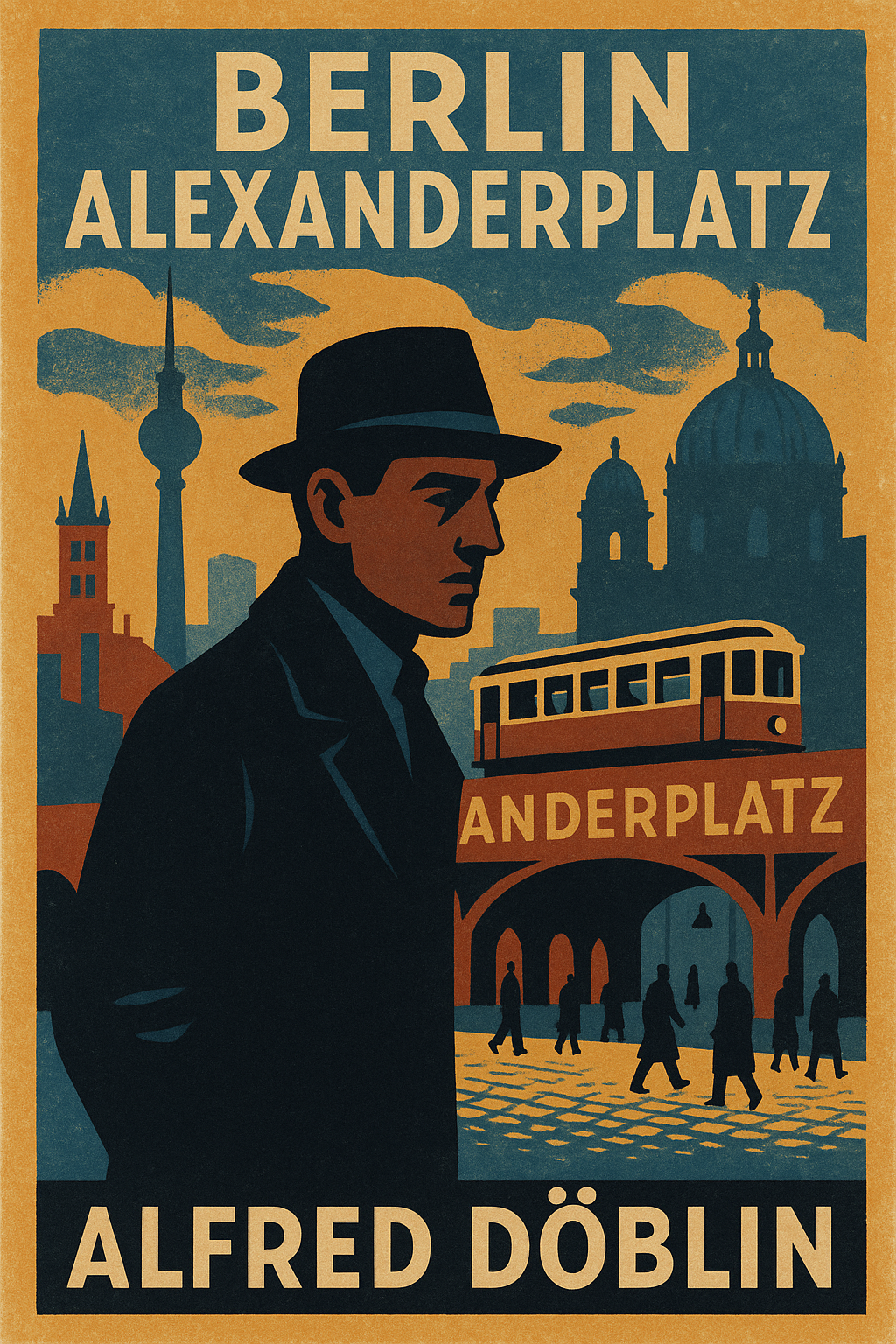Berlin Alexanderplatz
Berlin Alexanderplatz
by Alfred Döblin
Genre: Modernist Literature, Classic Literature, German Fiction
Target Audience: Fans of modernist novels, students of 20th-century literature, readers of German literature, collectors of classic fiction
Published in 1929, Berlin Alexanderplatz is a seminal modernist novel set in Weimar-era Berlin. The story follows Franz Biberkopf, a man recently released from prison, as he struggles to reintegrate into society amidst the chaos, crime, and social upheaval of the city. Alfred Döblin employs innovative narrative techniques, blending interior monologue, stream-of-consciousness, and cinematic imagery to portray Berlin’s vibrant, sometimes brutal, urban landscape.
The novel explores themes of guilt, redemption, survival, and the human condition, making it a landmark of 20th-century literature. Its complex characters and experimental style offer readers a gripping and thought-provoking portrait of life in a rapidly changing metropolis.
Berlin Alexanderplatz, Alfred Döblin, modernist literature, German fiction, classic literature, 20th-century novels, urban narratives, stream-of-consciousness, Weimar-era Berlin, literary fiction
Berlin Alexanderplatz by Alfred Döblin – Modernist Classic Novel
Explore Berlin Alexanderplatz by Alfred Döblin, a modernist masterpiece depicting crime, redemption, and urban life in Weimar-era Berlin.
Share


